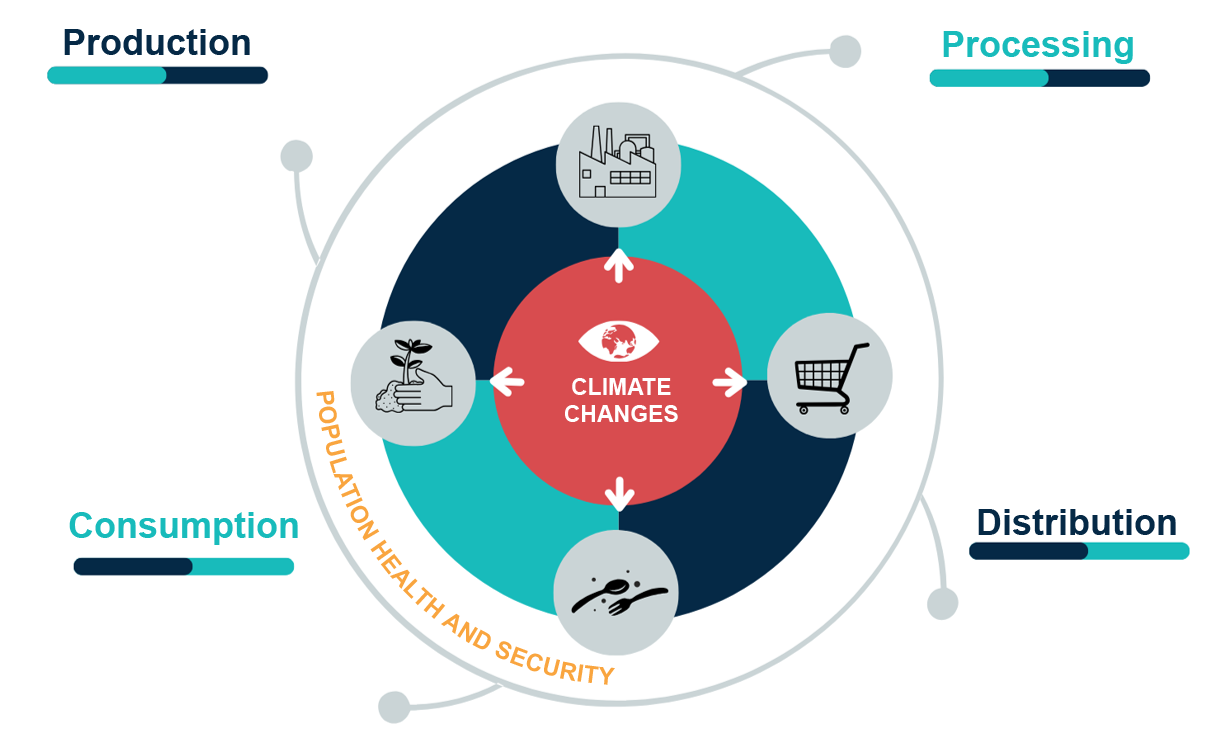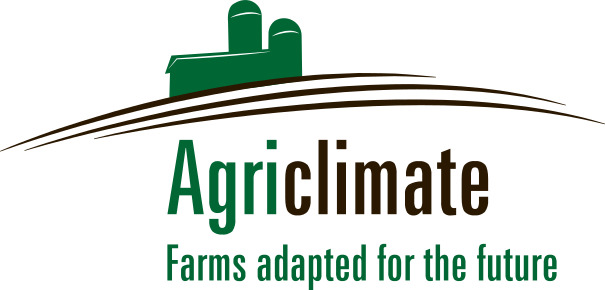The observed and expected intensification of climate change is likely to accentuate the vulnerability of food systems. In the face of this problem, it’s vital to support the implementation of adaptation strategies to ensure the population’s food security.
Weather like heavy rainfall and drought can leave a lasting mark on agricultural land. The rise of new invasive species and insect pests is further aggravating this situation, making agricultural management particularly complex.
Domino effect on the supply chain
The food system is like a chain with four links: production, processing, distribution and consumption. Impacts on producers will be felt by consumers.

Diagram of the food system supply chain. Ouranos. 2024.
The projected changes in the climate amplify certain risks, such as winter mortality of perennial forage crops, surface runoff and soil erosion during episodes of intense rainfall, and altered livestock welfare and productivity during heatwaves.
However, climate change can also be a source of opportunities. For example, the lengthening and warming of the growing season is favourable to the productivity of certain crops, such as corn and soybeans, and to the potential introduction of new varieties and species in northern regions such as Quebec.
The challenges facing the production link have major repercussions for the entire food system. A drop in the quantity and quality of harvested produce due to extreme weather conditions, for example, will lead to price hikes, and thus a cascading effect on the other links in the chain: processing, distribution and, ultimately, consumption.
Production is not the only issue
Climate changes, and extreme weather events in particular, have direct and indirect impacts on all of the links, not just production. They can also affect more than one link in the chain at a time.
-
The vulnerability of the infrastructure is particularly reflected in the maintenance of the cold chain, which can be weakened by an energy supply problem. In practical terms, this is the same phenomenon as when food spoils in the fridge due to a power failure.
-
Distribution, meanwhile, will have to adapt to possible transportation disruptions associated with more frequent and more intense weather hazards. For example, a snowstorm can cause delivery delays due to difficult conditions or impassable roads.
Ultimately, the impacts of climate change on the various links in the food system can have significant consequences for the food security and health of Quebecers, particularly vulnerable and isolated populations.
What can be done?
The resilience of food systems needs to be strengthened, from farm to fork. This requires the commitment and collaboration of many parties and the coordination of a wide range of actions.
Solutions do exist, and opportunities abound. One of the most promising is to provide support to those involved. For example, the Agriclimate initiative demonstrates that by working with the people on the ground, such as Quebec’s agricultural producers, we can co-construct innovative solutions that are well-suited to local realities.
While it’s useful to increase knowledge of the impacts of climate change and encourage constant exploration of new opportunities and solutions for the production sector, this is all the more necessary when it comes to the processing, distribution and consumption sectors. Raising awareness among those involved in these links and providing them with information are essential.
Involving the population in the adaptation process is another potential solution. In fact, including consumers in thought processes and decision-making on changes in practices, especially those from vulnerable and isolated populations, could help generate effective adaptation solutions and ultimately alleviate food supply and food security problems.
There are many challenges as the climate changes, but our knowledge continues to advance. There are ways to both manage the risks and seize the opportunities offered by climate change. Collaboration is the key to greater resilience in Quebec’s agricultural and food sectors.
